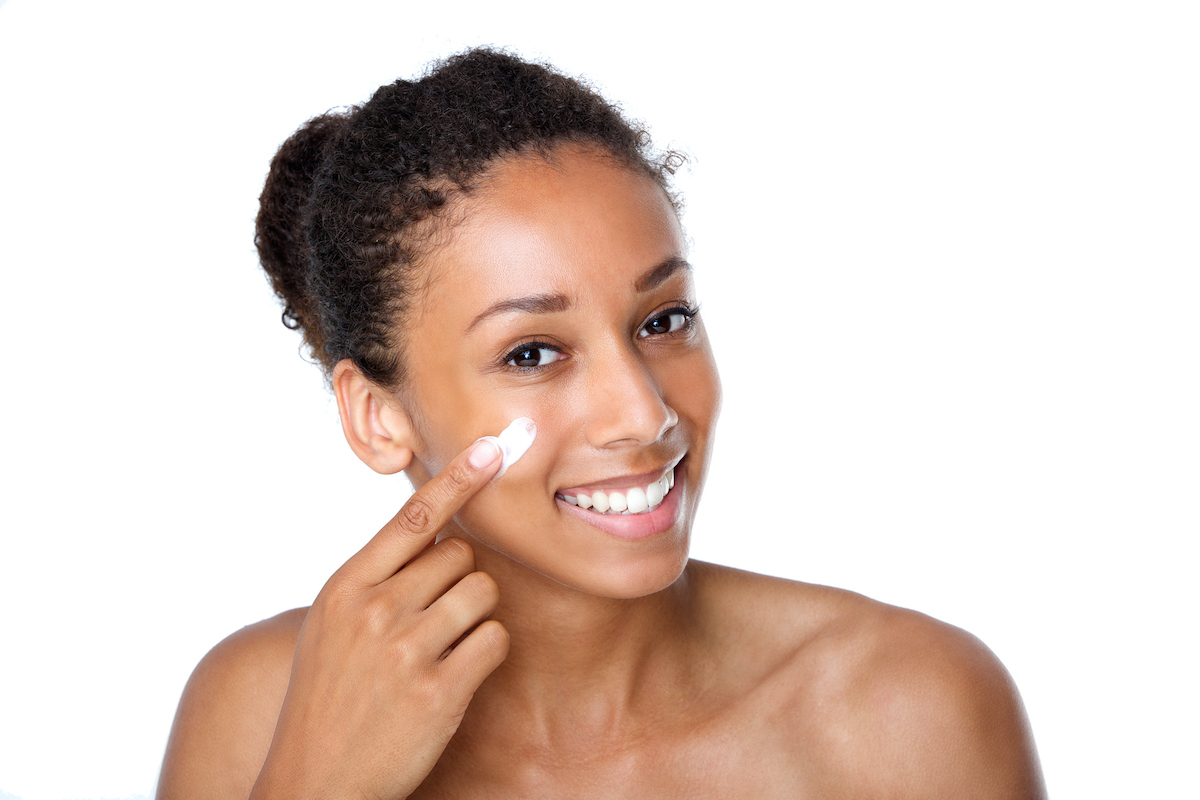Considering how much we know about the dangerous ingredients lurking in most traditional skincare products, it’s almost inconceivable we haven’t managed to eradicate the problem.
How is it that toxic products are still being freely and proudly displayed on most beauty shelves when we clearly know the dangers?
The conventional beauty industry profits from consumers’ lack of knowledge, which fuels a continued demand for name brand products that are full of toxic (and unlabeled) ingredients.
If we don’t know which products are harmful we’ll keep buying them, and the manufacturers will keep producing more to meet the demand.
Unfortunately, many skincare products contain chemicals that have been proven harmful to the human body. Many even boast a “natural” label when they really aren’t all that benign.
When it comes to skincare, what you don’t know may very well hurt you.
What Is Natural Skincare?
It’s clear not all cosmetic products can be trusted. Some ingredients commonly found in personal care products have been linked to a myriad of adverse health issues ranging from rashes to nausea, to hair loss, and more.
Consumers finally got tired of wondering what toxic health threats might be lurking in their shampoos and moisturizers, so they started searching for safer products.
Cosmetic companies recognized this need, and soon natural, organic, clean, and
“green” products began filling store shelves all over the country.
Sadly, while it may look like companies are focused on creating cleaner products, many of the claims they make on their products can’t be verified.
At the end of the day, most of us still can’t say for sure what’s really in our skincare products, or whether it will be toxic to our bodies.
So, What Qualifies as Natural Skincare?
Truly natural skincare products should contain only ingredients found in nature. In other words, free of synthetic chemicals. If you’re looking for natural skincare, take a good look at the label. Ideally, you’ll be able to recognize (and pronounce!) the list of ingredients.
Natural skincare ingredients may include:
- oils (tea tree, coconut, etc.)
- butters (shea, cocoa, etc.)
- hydrosols (distilled herbal waters)
- herbs (green tea, lavender, thyme, etc.)
- clays (kaolinite, Illite, Smectite)
- aloe
- sea salts
- grains (barley, quinoa, oats, rice, etc.)
- fruits (mango, orange, papaya, avocado, etc.)
Avoid the F Word
“Fragrance” is a red-flag ingredient that almost always indicates the presence of harmful toxins in a beauty product.
“Fragrance” is a vague term that can include hundreds of chemical compounds, many of which have been linked to some pretty scary health effects. Worse, federal law allows companies to leave chemicals off labels, especially those used in fragrances.
If you see the word “fragrance” on the label, it’s a safe bet the product isn’t natural at all.
What About Greenwashing?
Thanks to lax rules about skincare labeling, some cosmetic companies use the “natural ” claim on their labels a bit too freely. Terms such as all-natural, organic, and chemical-free often don’t mean a thing.
These are only marketing terms used to promote products as safe and better for your health and skin than the alternative when they may not be.
The problem is this:
There’s no regulation of the term “natural.” And there are no globally established standards a product must meet to be allowed to use the word “natural” on the label.
So, technically (even though it is sneaky), these companies aren’t breaking any laws.
The Food and Drug Administration (FDA) had this to say on the subject:
“The law doesn’t require cosmetic labeling to have FDA approval before cosmetic products go on the market, and the FDA does not have a list of approved or accepted claims for cosmetics.”
Even labels that can back up their natural and organic claims with proof aren’t necessarily 100% organic.
For example, if a product has the USDA Organic Seal, that means 95% of it is organic. But for a “made with organic ingredients” label, a product is only required to contain at least 70% organic ingredients.
Where’s the regulation on the other 30%?
How to Ensure Your Skincare Products Are Truly Natural
One option is to swap store-bought products with natural, homemade alternatives. Not only will you have more control of what goes onto your skin, but making your skincare products from scratch is also a fun and easy process.
Soon, you’ll learn which ingredients your skin prefers and how to mix and match ingredients to create your own custom products.
However, be careful –not every natural ingredient is harmless.
Whether you use plant oils, green tea, or fresh fruits and veggies, make sure to check their quality.
If DIY-ing isn’t your thing, you can also use only cosmetic lines certified by a third-party organization, such as The Environmental Working Group (EWG).
EWG is a non-profit, non-partisan organization whose primary goal is to protect consumers from false claims on product labels. To be EWG verified, a product must not contain any concerning ingredients listed on the EWG’s “unacceptable” list.
Our skin is our body’s biggest organ, and it’s intimately connected to our bloodstream. When we slather on products containing unhealthy ingredients we’re giving those toxins a free pass to absorb right into our bloodstream. Once there, they can wreak havoc on our health.
The bottom line is this—the more informed you are about your skincare ingredients, the safer and healthier you’ll be.











Join the GloWell Community on Social!
Don't risk missing a single thing. Follow us on social and become part of the GloWell community.